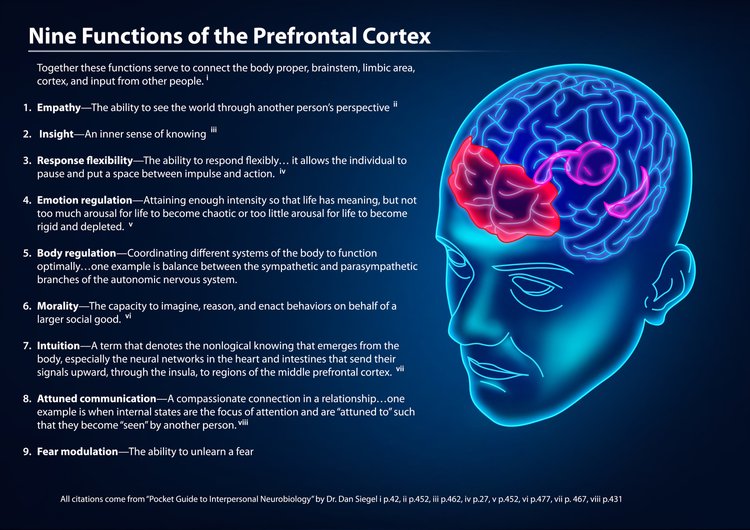Am I… Emotionally Peeing My Pants?
Jun 30, 2022
|
Response-Ability Digest
06.28
|
Am I…Emotionally Peeing My Pants? |
|
|
||||||
|
I have a question:Have you ever had to pee super bad and cannot find a place to go? Like… For Real… Like, eyes watering - breath holding - possible pants peeing - change of breathing - heart beating kind of pee? I have… It was August 2021…
Has this ever happened to you?
Now - Imagine at the moment of searching for a place to go, I stop you and ask you this question: “Tell me how you feel about your job and family life right now?” And then I said: “Why don’t you just stop looking for a place to pee and relax? Just relax… What’s wrong with you? You’re weird and probably broken.” If I actually said those things to you while you were looking for a bathroom and urgently needing to pee… Well, most likely you won’t care about my requests and will think I have no clue about life and being a human and you’ll go on in your search for relief.
The reason you can’t stop to answer questions when you have to pee is because the body is responding to a physiological need.
And Our bodies will always win when it comes to a physiological need. Like what you ask?
Ok… Here’s a list of where my personality, thoughts and opinions will always take 2nd place to the physiological need: Breathing Eating Drinking Sleeping Peeing (and the like) AND Drumroll… A Dysregulated Nervous System
Most likely you have accepted, even if unconsciously, everything on this list except for the last one…
Why? Because, in our world, no one teaches us what a dysregulated nervous system feels like in the body.
Regulation of the Nervous System is needed just like finding a place to pee is needed. Just like eating and breathing are needed. Same things really… In essence: If I ignore a natural physiological need, my body will keep upping the ante until it gets my attention. Imagine if I didn’t learn the intricacies of having to pee? I may still be peeing my pants and getting surprised every time… The thing is, that if I don’t learn the ins and outs of what happens in the dysregulation and regulation of the nervous system, I may end up Emotionally Peeing my pants. So, what does that mean?It may feel like I:
Are any of these things familiar? I’m banking on Yes if you’re reading this… Here is the thing to begin to understand:
If my Nervous System is dysregulated… It is impossible to think clearly. So - All thoughts coming through may be filtered through a false belief system built from a past traumatic experience. In other words: Thoughts Are Unreliable Guides when I Am Dysregulated.
Why?Because rational and clear thinking comes from the Prefrontal Cortex and during the process of Dysregulation, the Prefrontal Cortex is not fully accessible. The body needs to regulate to open the brain up fully again to access those thoughts that are more reliable.
They are there to get me to safety, not to help me make a life plan. Yet, if there is no inherent danger at the moment of dysregulation, the brain doesn’t know when to support me to get back to a regulated state. So, I end up looping around stuck in Panic Thoughts and Emotionally Peeing my Pants. Yikes and Double Yikes. This is why it is super important to begin to understand How my body works and how to support myself during dysregulation. It’s time to learn that my body, mind and emotions are an amazing gift. That, in dysregulation (which, PS, is normal and happens for every single human), my nervous system is trying to protect me from danger and it’s doing a great job! And that in Safety and Connection, I will regulate, and my brain will move from Panic Thinking to Clear Thinking.
Sending You a Great Big Regulated Hug Dear One. You are amazing. Yep. You.
Your Coach, Alecia
PS: A side effect of reading this post may be that you have to pee… So, if you have to pee while reading this… Take a pause and Go do it!!! |
|
Practical Application:This month, let’s start learning what dysregulation is like for you… Now, this isn’t the most fun learning curve, just like potty training has some wet uncomfortable moments… So too Dysregulation can be uncomfortable to observe. If this feels unsafe or is confusing, make sure to reach out and get support! Always put safety first when exploring the reactions of the nervous system. Questions to Ponder:Do I notice getting stuck in my mind in an argument with myself or someone else? Do I panic when I feel any sensations in the body? Do emotions sweep in and out with my thoughts?
When you notice any of those 3 things…
Ask yourself: What would help me to know I am safe right now? ie: My favorite song, a talk with a friend, a prayer, a walk in nature… Reminds me that the thoughts that I’m thinking are probably not true, but they are most likely panic thinking. How do I know I am safe? ie: I am in my room and the walls are blue. I may feel bad but there is nothing dangerous Right Now.
PRO TIP: Actively participate in finding and experiencing Safety for 10-20 minutes… Then, observe your thinking again. What has shifted, if anything, as your Prefrontal Cortex comes on board more fully? |
|
Here’s a 1-minute video that is a hilarious example of not taking my thoughts too seriously… But… Seriously, watch it… You will laugh: |
|
SERIES: I am Not a Scientist - But I’m Learning Science ThingsI have a Crush on My Prefrontal Cortex… |
Did you know that this part of the brain isn’t fully developed until age 25?Soooo that’s why I have a pile of hilarious memories from my early 20’s… Since my baby brain was still developing, I just didn’t have the ability to think rationally quite yet! Because the Prefrontal Cortex has such a direct and amazing effect on how I experience life both interpersonally and in setting and reaching goals - I want to give myself the best education on how to access its strengths. This means, learning how to regulate my nervous system and expand patience as it takes time for the brain to open up after sensing or experiencing danger. If you want to learn more about this amazing little one’s contribution to your life and wellbeing, make sure to read this article here: Prefrontal Cortex - The Science of Psychotherapy
Next month, let’s take a look at the part of the brain called the: Amygdala. The Prefrontal Cortex and the Amygdala are important members to understand and appreciate and we are learning how our amazing body and brain works in harmony - even after trauma - even in imperfection.
In Science and Safety, Laughter and Connection, Alecia |
|
* LEARNING BONUS *Click the links below to watch two brief videos: |
|
NEW MONTHLY FEATUREGRATITUDE HIGHLIGHT OF THE MONTH: |
Thank you…DeniseIn this feature, I wish to thank someone who has contributed to my safety & connection as I grow and share this vital work with anyone that finds it supportive. I’d like to thank you Denise for sending me a particular email when I had to shut down my previous business during 2020. I’m not sure you know what a gift the words you wrote me were… When I was dysregulated and grieving during great loss, you wrote a word picture for me of the future. And, when I was ready for to look for the bravery to step into this new amazing future, I remembered your email. And I read it out loud to my coach and I cried. I cried as those words nurtured the flame of confidence within to be brave when I was scared. Thank you for taking the time to write, for preserving the part of me that was quiet during grief, so I could come back to living more whole than I could ever imagine. Thank you Dear One Alecia |
|




